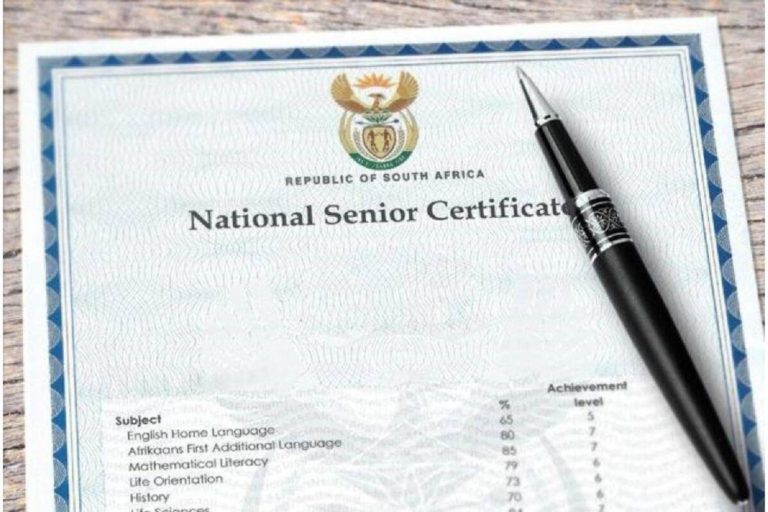
Screenshot

I start with an apology for the non-appearance of this column last week.
The spirit was willing, but ill-health meant that body was too weak to oblige. Prior to the hiatus, the two previous editions of this column had – based on a keynote address delivered at the Second Annual Convention on Policing convened by Justice Access Point (JAP) – grappled with the question as to whether ‘democratic policing’ can be attained in context such as that which currently pertains in Uganda.
Today, we reflect on that aspect of the policing crisis in Uganda which has been characterized by a cynical use of the law – a phenomenon that has been termed ‘rule by law’.
A significant proportion of these problematic provisions are embedded in the Police Act (Cap 324), which in many ways continued the spirit of the colonial-era regime policing.
A good example was Section 32 (2) of the Act, which provided as follows: ‘If it comes to the knowledge of the Inspector General that it is intended to convene any assembly or form any procession on any public road or street or at any place of public resort, and the Inspector General has reasonable grounds for believing that, the assembly or procession is likely to cause a breach of the peace, the Inspector General may, by notice in writing to the person responsible for convening the assembly or forming the procession, prohibit the convening of the assembly or forming of the procession.’
This was clearly an overbroad grant of discretion to the police, and it was indeed often (mis)used to prohibit assemblies convened by opposition politicians before it was finally challenged in the case of Muwanga Kivumbi v Attorney General (Constitutional Petition No.9 of 2005).
In a unanimous decision rendered on 27th May 2008, the Court agreed with the petitioners and declared the provision null and void for inconsistency with the freedom of assembly (Article 29).
In her lead judgment, Justice Constance Kategaya Byamugisha observed that the power given to the Inspector General of Police was essentially ‘prohibitive rather than regulatory’ and that its open-ended nature granted the holder of that office draconian fiat to decide who could assemble and who could not.
In her view, such power was unjustifiable and indefensible in a free and democratic society (see page 16 of the decision). Justice Byamugisha also took special note of the importance of balancing the rights of the individual, on the one hand, with the imperative of maintaining law and order.
At the same time, she emphasized the critical importance of ensuring that regulation of assemblies (or indeed the exercise of any other rights) did not become a pretext for discriminatory or regime policing, noting: ‘The right to peaceful protest is not absolute.
The police have a wide range of powers to control and restrict the actions of protestors. These powers should not be exercised by the police in an unaccountable and discriminatory manner’ (at page 15 of the decision).

Essentially, Justice Byamugisha was underscoring the importance of democratic and accountable policing, rather than discriminatory or ‘regime’ policing. Sadly, developments that followed the Muwanga Kivumbi decision only affirmed the NRM’s firm commitment to regime policing rather than democratic policing.
Perhaps the most significant of this was the enactment, in 2013, of the Public Order Management Act (POMA) (now Cap 326) which in many ways constituted a reincarnation of the letter and spirit of the impugned Section 32 (2) of the Police Act.
Section 8 of the POMA, in particular, was more or less a mirror image of Section 32 (2) of the Police Act, which had been nullified in Muwanga Kivumbi. Three months after the POMA was enacted it was challenged, on 10th December 2013, in the case of Human Rights Network Uganda (HURINET) and 4 Others v Attorney General (Constitutional Petition No.56 of 2013).
Unfortunately, the case was only heard six years later, on 13th June 2019 and a decision rendered on 26th March 2020. Additionally, while the petitioners had initially challenged Sections 4(1) and (2) (b), 5, 6(1) and (3), 7(2), 8, 9, 10, 12 and 13 of the Act, at the 2019 hearing, they indicated that they were abandoning the rest of the challenges, and concentrating only on Section 8.
It appears that this was a miscalculation since the Constitutional Court appears to have been minded to strike down the entire Act (See for instance, Justice Cheborion Barishaki’s observation that this had been ‘strange and unwise’ – at page 3 of his decision, and Justice Kenneth Kakuru’s view that this was ‘irregular’ – at page 6 of his decision).
Be that as it may, by a majority of 4-1 (Justices Cheborion Barishaki, Elizabeth Musoke, Geoffrey Kiryabwire and Kenneth Kakuru concurring, and Justice Stephen Musota dissenting) the Constitutional Court found Section 8 of the POMA to be unconstitutional as a violation of Article 92 of the Constitution (which prohibits Parliament from passing any law to alter the decision or judgment of any court as between the parties to the decision or judgment).
In a particularly excoriating lead judgment, Justice Barishaki observed as follows: ‘Consequently, the enactment of Section 8 of the Public Order Management Act 2013 was done in blatant disregard, by Parliament, of Article 92 of the Constitution.
This impugned provision was calculated, rather unfortunately, to water down the import of this Court’s decision in Muwanga Kivumbi vs Attorney General … Section 8 of the Public Order Management Act 2013 is clearly a “reincarnation” of the nullified Section 32(2) of the Police Act for all intents and purposes … Passing legislation that alters or undermines a judicial decision has dire implications for the future application of the checks and balances necessary for the functioning of a civilized democracy and prevention of peremptory behavior by the three pillars of government, namely, the Legislature, Executive and Judiciary.
The above aforementioned doctrine has been at the very core of Uganda’s growing constitutional governance and no room should be given to attempts to whittle down this growth and regress into the dark days of the political and constitutional instability …In this context, the only plausible legislation that parliament could possibly pass, in reaction to the judgment of Muwanga Kivumbi vs Attorney General, without offending Article 92 would be to amend the said Article itself alongside Article 29 of the Constitution.
Such an amendment could itself trigger very complicated constitutional questions as human rights provisions form part of the basic structure of our constitution.’ For his part, Justice Kenneth Kakuru would have upheld the (original and comprehensive) petition, and struck down the entire POMA.

While the HURINET case (like Muwanga Kivumbi) demonstrates the critical role courts (and public interest litigants) can play in pushing back against draconian legislation, it also reveals the limitations of such actors, especially in the face of an Executive Branch determined to act with impunity, and a Legislature which has all but capitulated to such overreach.
Courts seem to be playing ‘catch-up’ with the political branches, and their ability in this regard is even more weakened when the judicial system is plagued by its own structural weaknesses (evidenced, among other things, by inordinately delayed decisions).
The potential – and limitations – of the Courts (and public interest litigants) is further demonstrated by the case of Moses Mwandha v Attorney General (Constitutional Petition No.5 of 2007), which like Muwanga Kivumbi, successfully challenged aspects of the Police Act.
Although this case was filed before the delivery of the decision in Muwanga Kivumbi, the judgment in this matter was only delivered on 30th May 2019 (over 12 years after it was presented to the court, and about a year before the decision in HURINET).
Nonetheless, the Mwandha case continues to constitute an important record of police power in Uganda, and its mis(use). The case challenged, among other things, Sections 33, 34, 35, 36, 37 and 40 of the Police Act.
These provisions related to the power to stop and or disperse unlawful assemblies and processions (Section 33); the designation of an unlawful assembly (Section 34); power of the Minister to gazette areas in which assembly was forbidden (Section 35); dispersal of terminated assemblies (Section 36); penalties for taking part in terminated processions or assemblies (Section 37) and prohibition of use of public address systems without police permission (Section 40).
The Court (composed of Alfonse Owiny Dollo DCJ and Justices Kenneth Kakuru, Fredrick Egonda- Ntende, Hellen Obura and Ezekiel Muhanguzi) was unanimous in finding Sections 35, 36, 37 and 40 to be unconstitutional, and decided 4-1 (Justice Muhanguzi dissenting on a technical issue) that Sections 33 and 34 were similarly unconstitutional.
In his lead judgment explaining the untenability of such provisions in a free and democratic society, Justice Kakuru cited with approval, and applied, the logic of the Muwanga Kivumbi decision.
However, he went even further – invoking the colonial history of the criminalizing of dissent in Uganda and its lowest point in the Idi Amin era (at page 19 of the decision); recalling similar abuses of police power in apartheid South Africa (at page 20 of the decision); and relying on reports and statements issued by the Uganda Human Rights Commission (UHRC), the Uganda Law Society (ULS) and Amnesty International on police brutality in Uganda (at pages 20-22 of the decision).
Notably, he also relied significantly on a 2019 report by the Human Rights and Peace Centre, of the School of Law, Makerere University entitled ‘Human rights violations in Uganda: The abuse of civil and political rights in the era of Kisanja Hakuna Mchezo’ which detailed the chilling effect of police overreach on citizens’ freedoms of speech, association and assembly (at pages 23-25 of the decision).
Among other important assertions, Justice Kakuru observed that the broad power of dispersal of assemblies under Section 36 of the Police Act was ‘nothing but a licence to shoot and kill citizens who [we]re peacefully gathered to voice their concerns or grievances, a right guaranteed under the Constitution’ (at page 20 of the decision).
He went on to make the following important observation regarding Section 36 and analogous provisions in the Police Act: ‘A law such as Section 36 of the Police Act, which permits the Police to do all things necessary to disperse a crowd that is not rioting, violent or armed goes beyond the powers of Parliament to enact.

The same law goes on to give immunity to the police who kill citizens of this Country … This law does not just condone, but it authorizes and legitimizes police brutality. The brutality of the Police against innocent citizens of this Country requires judicial notice.’ (at page 20 of the decision).
Evidently, the courts, and public interested persons, have tried to challenge regime policing in Uganda. Unfortunately, the structural weaknesses of the Judiciary itself, and the limits of public interest litigation (which can often only be piece-meal and incremental rather than holistic), mean that a determined and nefarious Executive Branch, acting in concert with a docile and servile Parliament, might always stay a step ahead.
For instance, while we have briefly surveyed the provisions of the Police Act and the Public Order Management Act, analogous provisions can be found in such statutes as the Penal Code Act (Cap 128), the Criminal Procedure Code Act (Cap 122) and many others.
How many cases will be filed challenging the various provisions in these and other laws which allow the police and other security agencies to abuse civil liberties in Uganda? And how long will these cases stay in the system before they are finally decided?
And what guarantee exists that these decisions will be positive (especially with the ever-worsening cadre of judicial officers in Uganda)? And what is to be done when the political branches find new ways of frustrating court decisions as was done with POMA re Muwanga Kivumbi?
When one puts all these questions together, the situation is a bleak one. Incidentally, for instance, Section 13 of the 2013 POMA was couched in exactly the same terms as Section 35 of the Police Act (which was itself nullified in the 2019 Moses Mwandha case) – and this Section (13) was not nullified in the 2020 HURINET case.
Is the solution for activists to now challenge Section 13 also, with a potential decision being delivered about 10 years from now (2035)? How many people will have suffered police impunity and overreach in the meantime?
However, there is an even larger problem. There are several potentially innocuous (and even arguably useful) provisions of the law which can be thoroughly abused by bad actors – as Uganda’s regime police certainly are. What is to be done with these?
A good example of this conundrum is provided by Section 24 of the Police Act, which allows for preventive arrest in certain specified situations. A challenge to this provision in the case of Foundation for Human Rights Initiative (FHRI) v Attorney General (Constitutional Petition No.53 of 2011) was unanimously dismissed by the Constitutional Court (in a decision rendered on 3rd July 2020).
In his lead judgment (with Owiny Dollo DCJ and Justices Kasule, Muhanguzi and Madrama Izama concurring), Justice Fredrick Egonda-Ntende held, citing a 2005 decision of the Indian Supreme Court, that a statutory or other provision ‘[could] not be held to be unconstitutional merely because the police might abuse its power’ (at pages 17-18 of the decision).
While the logic of this statement is difficult to assail, it does bring into sharp relief the trouble in which Ugandans find themselves. In the event, the power of preventive detention has continued to be abused by the Uganda Police, including during the Ugandan ‘Gen Z’ protests, to curtail association and assembly.
And the police are discovering, and using, even more laughable charges against protestors (such as ‘being a nuisance on roads’ contrary to Section 67 of the Roads Act!). The limits of the law, of the courts, and of lawyers and public-spirited litigants, are evident.
Next week, we conclude this exploration of the tragedy of ‘regime policing’ – and the (very dim) prospects for ‘democratic policing’ – in Uganda with some concrete suggestions for structural reform.
The writer is Senior Lecturer and Director of the Human Rights and Peace Centre (HURIPEC) at the School of Law, Makerere University, where he teaches Constitutional Law and International Law.



